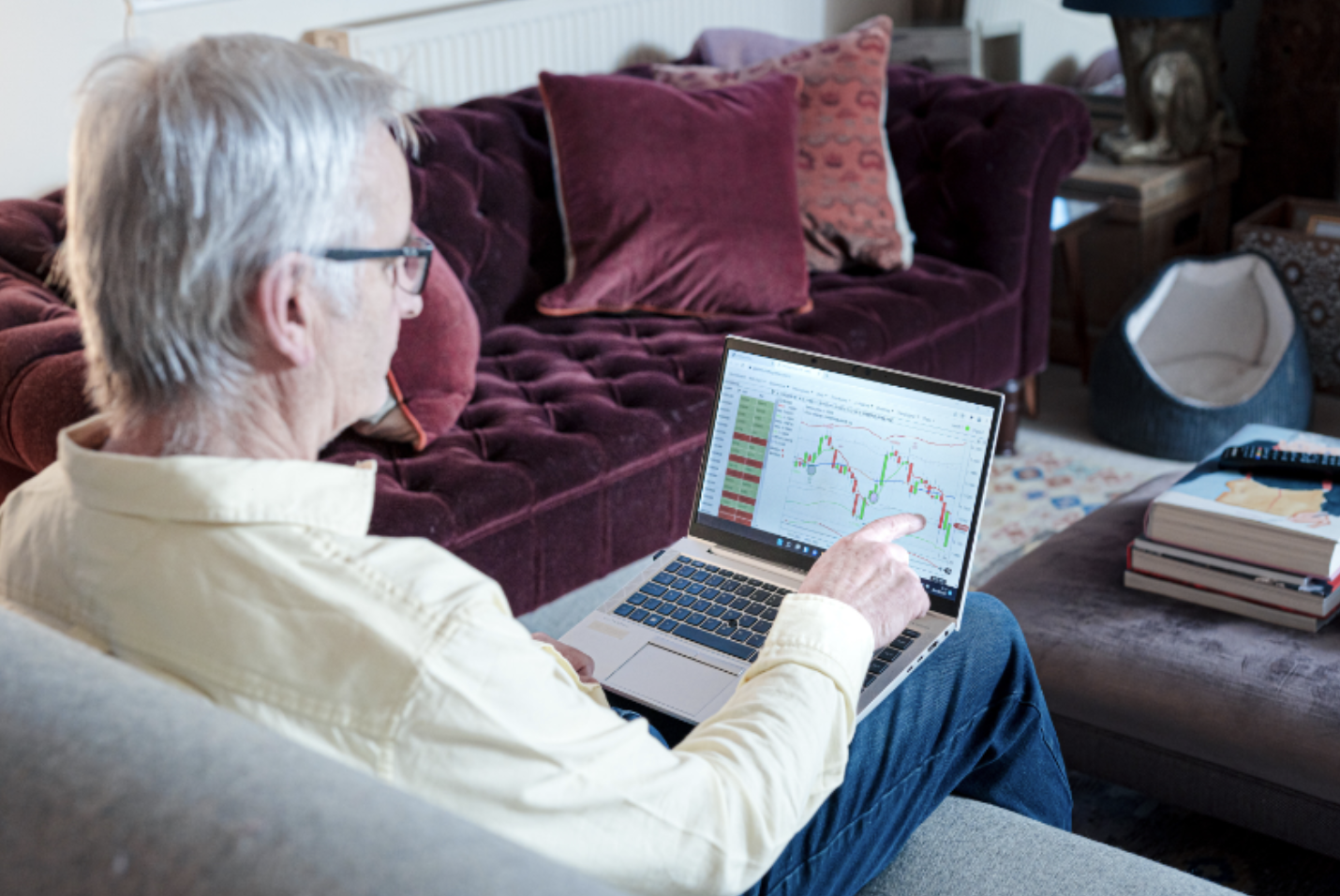When it comes to learning to trade, there’s a common screw-up that ensnares a ton of novice traders on their journey to financial security: overtrading.
It’s a pitfall that can seem very tempting (hoping more trades means more profits!), but it often leads to disaster. Let's break down the perils of overtrading and the valuable lessons it holds for those trying to build financial security through trading.

Image by pvproductions on Freepik
Overtrading is a mistake that a lot of beginning traders make. The thrill of the financial markets, with their potential for fast profits and constant action, can be intoxicating. But this very allure can lead traders to make a critical error – executing way too many trades.
For many rookie traders, overtrading happens because of the urge to quickly recover losses or capitalize on every little market wiggle. It’s behaviour driven by impulsive choices rather than a well-planned trading strategy. The consequences can be huge: excessive transaction costs, emotional burnout, and, all too often, financial losses.
The hazard of overtrading often creates a self-destructive cycle. Traders find themselves glued to their screens, making trades nonstop, without a clear rationale. They get emotionally drained, their stress goes through the roof, and their account balances tank.
But, like with many trading mistakes, there are lessons to pick up from the perils of overtrading:
-
Quality Over Quantity: The big lesson is that in trading, the quality of your trades matters way more than the quantity. Novice traders must understand the importance of high-quality setups and disciplined execution. It's crucial to only trade when a well-thought-out strategy points to a clear opportunity, resisting the temptation of constant action.
-
Strict Trading Rules: Making strict trading rules is key for avoiding overtrading. These rules should dictate when to enter and exit the market, creating clear guidelines that help traders stay disciplined. Following these rules can provide a safety net in tempting moments.
-
Effective Risk Management: To reduce the damage caused by overtrading, traders need to use effective risk management. This includes limits on daily trades and maximum capital at risk per trade (position-sizing). Proper risk management protects both the trading account and the trader’s emotional well-being.
-
Balanced Lifestyle: It’s important for traders to realize trading isn’t just about charts and market analysis. Maintaining a balanced, healthy lifestyle is essential. This is especially the case for people trading for long periods. Regular exercise, enough rest, and breaks from the screen contribute to the trader’s overall well-being. A healthy body and mind are priceless assets in trading. Of course, it’s less of an issue for those traders who spend less time at their screens.
-
Patience and Emotional Control: Overtrading often comes from impatience and the fear of missing potential profits. Novice traders must learn to control their emotions and resist chasing every market move. Patience becomes a valuable ally in avoiding the overtrading trap. It’s something that you realise more and more, the greater experience you have.
In summary, overtrading is a pitfall that trips up many beginner traders on their mission for financial security through trading.
But the mistakes it brings can be overcome. By heeding the lessons of those who’ve been down this road, novice traders can sidestep the overtrading trap.

Understanding quality over quantity, sticking to strict trading rules, using effective risk management, maintaining balance, and embracing patience and emotional control will set traders on a more sustainable path to achieving their financial security goals.
To find out more about Trendsignal’s trading courses and rules-based strategies designed to help you on your journey to financial security join one of our FREE webinars.
Register for your FREE session by clicking here.






